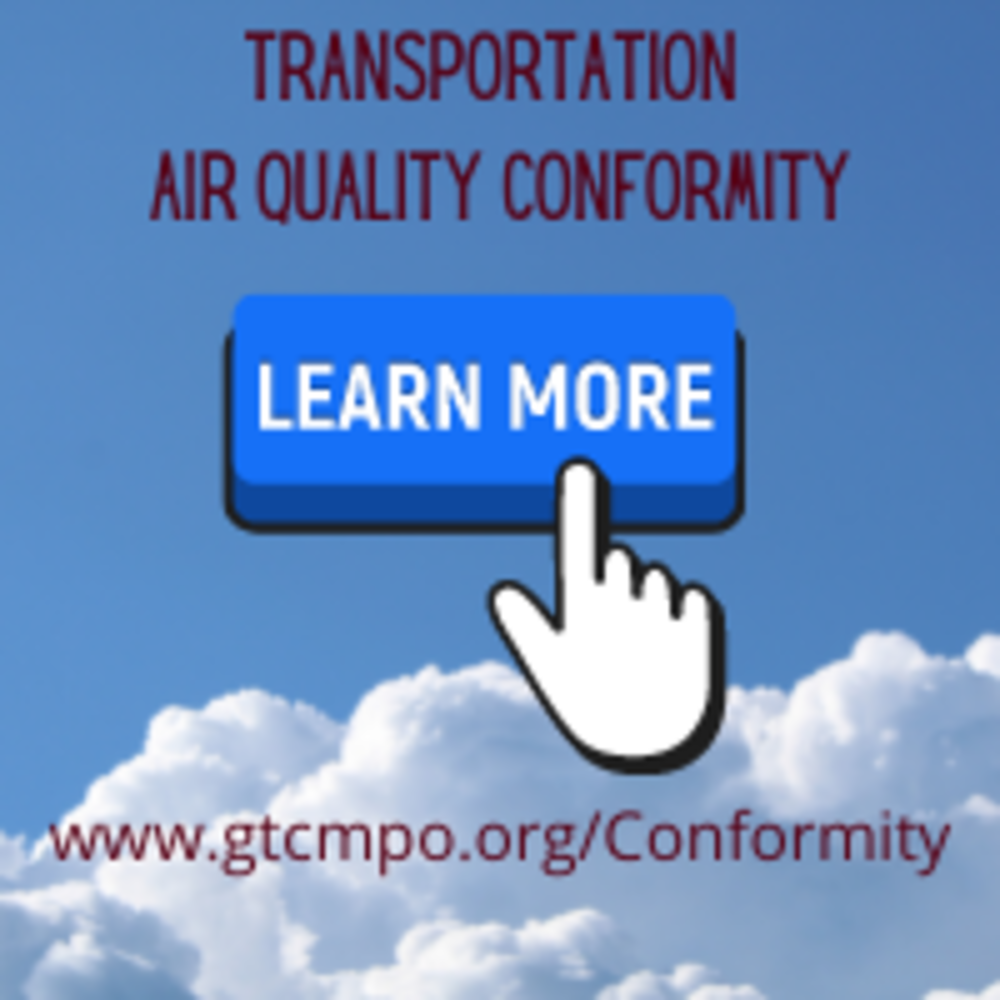Air Quality Conformity Statement for the LRTP 2045 and TIP 2023-2027
Air Quality Conformity Statement for the LRTP 2045 and TIP 2023-2027
The draft Transportation Conformity Statement for the Long Range Transportation Plan for the Genesee-Finger Lakes Region 2045 and the FFYs 2023-2027 Transportation Improvement Program is available for public review concurrently with the public review of the TIP from July 15 through August 15. GTC will present the final Conformity Statement to the Planning Committee on August 11 to recommend that the GTC Board approve it. The GTC Board is expected to take action at its August 25, 2022, meeting.
The Transportation Conformity Statement is updated when a new Long Range Transportation Plan or Transportation Improvement Program is adopted or when there is a significant change to a Non-Exempt project.
For more information about this topic, please visit gtcmpo.org/Conformity or contact Alex Kone, Assistant Director, at contactgtc@gtcmpo@org or call 585-232-6240.
Overview
Transportation Conformity is the process by which metropolitan planning organizations ensure transportation investments included in the region’s TIP conform to the Federal Clean Air Act, and demonstrate that a proposed plan of projects will not negatively affect a region’s ability to meet or maintain federal air quality standards.
Pursuant to the Clean Air Act Amendments of 1990, the long range transportation plan and transportation improvement program for the Rochester Metropolitan Statistical Area (MSA) must receive a positive conformity determination from the Federal Highway Administration (FHWA), Federal Transit Administration (FTA), and the United States Environmental Protection Agency (USEPA) to demonstrate that projects contained therein do not hinder the MSA in attaining the National Ambient Air Quality Standard (NAAQS) for ground-level ozone.
GTC works with the New York Air Quality Interagency Consultation Group to assess project classifications. Federal regulations identify certain project types that are exempt from the air quality analysis process. These projects have little to no impact on air quality or address a safety issue. Projects that are expected to have an impact on air quality are classified as Non-Exempt and need project-specific analysis.
GTC and the NYSDOT work cooperatively to conduct the required analysis to ensure that federally-funded transportation improvements in the Rochester MSA conform to federal air quality standards. This analysis is included in a Conformity Statement that is submitted to FHWA, FTA., and USEPA for consideration.
